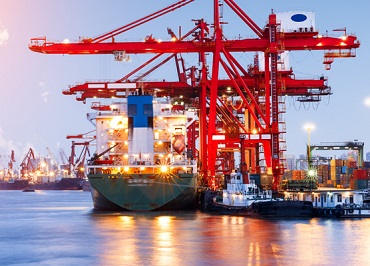In this dynamic world, where businesses cross many international borders, there is a concern that companies are jeopardizing their ability to freely move goods and their reputations simply by who they are doing business with. How do companies ensure that all parties with which they have trading relations are safe to do business with? The answer is tied to government requirements that companies must screen the parties they do business with.
What is Party Screening?
Globally, governments have regulations to restrict or prohibit individuals and companies from exporting or providing services of any kind to any party contained in their country’s export denial, debarment, and blocked persons lists. The process of reviewing customers, vendors, visitors, and any other business partners and related parties is generally managed through a manual review of the government lists, or through a search engine designed to match those entities against restricted or denied parties.
Companies and financial institutions are required to screen prior to engaging in business activities, to confirm that the person or entity does not appear on any country agency lists of denied/excluded parties.
How does a Party Screening search engine work?
The tool analyzes the structure of a name and performs an intelligent comparison using advanced linguistic algorithms. If the system finds an exact match, it will display as a 100% match, thus seeking action from the user on whether they still want to go ahead and do business with or block the party. The more information entered, the easier the system will find relevant false positives and provide the probable result for a user to take action to resolve.
When Party Screening makes sense
Generally, screening should be performed on any party to which a product or information is distributed, to the final end-user, and the group of individuals and businesses involved in the entire transaction. Screening can also be used for contacts, visitors, and employees—though the lists screened may vary for each of these purposes.
- Supply Chain Logistics: Parties screening before having any trade relationship and then as part of the operational ongoing review when an order has been created for a shipment
- Human Source: Background check of candidates
- Visitors: Review of parties on-site and review of information that might be shared
- Financial Institutions: Checking of parties before having any dealings
The Most Important Part of Your Restricted Party Screening Program
One of the most important parts of this process is to document why a decision was made. If the Restricted Party is audited by any of the regulatory agencies, proof of the review process and demonstration of due diligence in the decision should be made available. It is a requirement to demonstrate this due diligence as a strong mitigating factor against penalties.
Compliance checks are as much of an art as they are a science. By taking the proper steps to evaluate the parties in a transaction, a company mitigates their risk, thus maintaining a solid reputation of the company as well as partnering with the government to protect the country(ies) they are doing business in.






